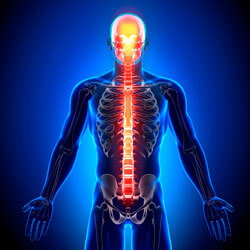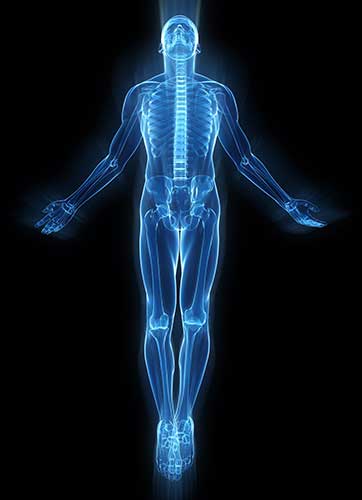What is Biodynamic Craniosacral Therapy?
Have you ever felt overwhelmed and decided to talk to a friend who didn’t say much, but simply sat quietly, paying close, compassionate attention and really listening to you? Perhaps, as you talked, your problems began to make more sense, and you began to figure out how to address some of them.
The human body needs the same kind of attention. Our bodies talk to us all the time; it’s just that, usually, we aren’t able to listen. There are many reasons for that, from something as drastic as trauma, to being taught that the messages of our bodies should be ignored (“Walk it off!”), to something as simple as the distractions of a busy life.
Biodynamic Craniosacral Therapy is dedicated to listening to the messages of the client’s body with close, compassionate attention. Biodynamic Craniosacral Therapists (BCSTs) rely on our acute skills of perception and palpation, developed through years of study, that enable us to perceive subtle physiological changes in our clients and assist the system in bringing itself back into balance.
What is the Craniosacral System?
The craniosacral system primarily consists of four anatomical components:
- The cranial bones
- Cerebrospinal fluid, which bathes, cushions, and nourishes the spinal cord and brain
- The membranes that extend from the cranium to the sacrum
- The sacrum itself
All of these components, when in a healthful state, exhibit free motion that is essential to health. Accidents, physical or emotional trauma, illness, surgery, and even medications can cause imbalances or restrictions in the craniosacral system. This can impede nerves, interfere with blood flow, and restrict the connective tissues of the body, resulting in pain or chronic problems.
These restrictions can also have profound emotional implications. BCST promotes balance among the components of the nervous system, which is of great benefit when illness, trauma, or stress have resulted in overstimulation and depletion.
What do biodynamic craniosacral therapists do?
Although biodynamic craniosacral therapy is a hands-on form of bodywork, BCSTs do not use massage or chiropractic techniques. While the client lies fully clothed on a massage table, we attune to the components of the craniosacral system in a gentle, non-manipulative, non-intrusive way, allowing the system to express itself and resolve tensions and restrictions. In this way, the BCST helps to bring the nervous system into balance, and enables the client’s body to address restrictions and imbalances.
Problems BCST may benefit include:
- Stress
- Anxiety
- Depression
- Post-traumatic stress
- Post-surgical issues
- Post-concussion issues
- TMJ problems
- Asthma and other breathing problems
- Effects of physical or emotional trauma and abuse
- Migraines and other headaches
- Learning problems
- Autism spectrum disorders
- Sleep disorders
- Consequences of auto accidents
- Sprains and strains
- Sinus problems
- Post-Intensive Care Syndrome
- Jet lag


